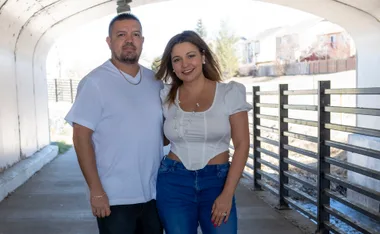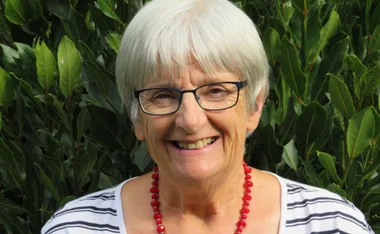Brave 11-year-old Isabelle and her parents Naomi and Andrew have revealed the struggles of growing up transgender.
To the outside world Campbell looked like any other young boy. Inside though, her true identity was screaming to come out.
In a moving edition of ABC’s Four Corners, Isabelle’s mum Naomi revealed how Isabelle first let her and her husband Andrew know that something wasn’t right.
“There was probably a couple of months where she’d start a conversation with me saying I’m just feeling weird, I don’t feel right,” Naomi said.
“She said … I don’t like my body, and I said well … what do you mean? And she said. I feel like I’m a girl, I’m in the wrong body.”
Isabelle told journalist Janine Cohen: “I just said to my mum that I didn’t wanna be boy, I felt like a girl and that I’m sick of living in this body.”
11 year old Isabelle was born a boy, known as Campbell, and feel trapped in the wrong body.

In a worrying statistic, the program revealed how 30 per cent of young transgender people who don’t get treatment attempt suicide and another 50 per cent self-harm.
Once Isabelle began grappling with the difficulties that her identity would present her with in life, things began feeling grim for her too.
“She … just whispered, I just can’t see what the future looks like for me,” Naomi said.
“And that was awful … I think for me that was the point where the confusion kind of melted away a little bit and you just sort of think well god, we’ve only got one job here and this is to help her create a future that she can live with, that she can thrive in.”
In an effort to create that future for her, not wanting their child to become just another statistic, Naomi and Andrew sought to help.
However currently, children wishing to change gender must go through not one, but two, long, drawn-out legal procedures to establish their ability to consent to treatment involving gender-changing hormones.
Children can now be treated with puberty blockers which help delay the onset of puberty. The benefit of this is it can buys the child time to think about whether gender reassignment is really what they want before the unchangeable effects of puberty kick in.
As Professor Dr Campbell Paul, a psychiatrist at the Royal Children’s Hospital, explains, when weighing up the pros and cons, their benefit seems undeniable. “And in this case what we have is a risk of self-harm and suicide that is extremely high, and yet a risk of regret that is very small.”
The assessment before a child is prescribed these is highly rigorous – they must meet with at least five doctors.
“There is a team of us that are involved and in the first instance it’s a psychiatrist and an adolescent physician or an endocrinologist and we get a detailed assessment from the family,” Dr Paul explained.

Once they reach 16 years of age, adolescents can then seek the second course of treatment which involves irreversible cross-changing hormones.
First though the Family Court must assess whether they have the capacity to consent or are “Gillick competent” as the test is known.
Chief Justice Bryant explains it as: “It relates to the child’s capacity in a holistic and psychosocial way to give informed consent to the treatment, so in these kind of cases you’d want to be satisfied that the child concerned was aware of all of the problems, the risks, dangers; you would want to know that the child was psychologically in a position where they could make these decisions.”
This drawn out course process can be a great expense though – both financially in the cost but also in the amount of time taken. The latter can of course further delay the child’s treatment and cause further irreversible development into the gender that they do not identify with.
With the increase in numbers of children and parents coming forward to seek help, the pressure is on for the law, as it currently stands, to change. For this to happen there would have to be a test case taken to the full bench of the Family Court – it would then have to be taken all the way to the High Court.
Family Court Chief Justice Diana Bryant tells the ABC: “I’d like to see the High Court have the opportunity to examine these kinds of cases, these gender identity cases and to decide whether or not the court has to be involved at all.”
For the young people concerned though, the convoluted legal processes can seem daunting and unnecessary when all they really want is a chance to just be themsleves.
Showing remarkable insight for someone at such a young age, Isabelle perhaps sums up the situation best: “If you don’t be yourself, you’re going to be miserable for your whole life.”
If you or anyone you know is in need of support, contact Lifeline Australia on 13 11 14 or Kids Helpline on 1800 55 1800 or visit BeyondBlue.
.jpg?fit=900%2C506)









